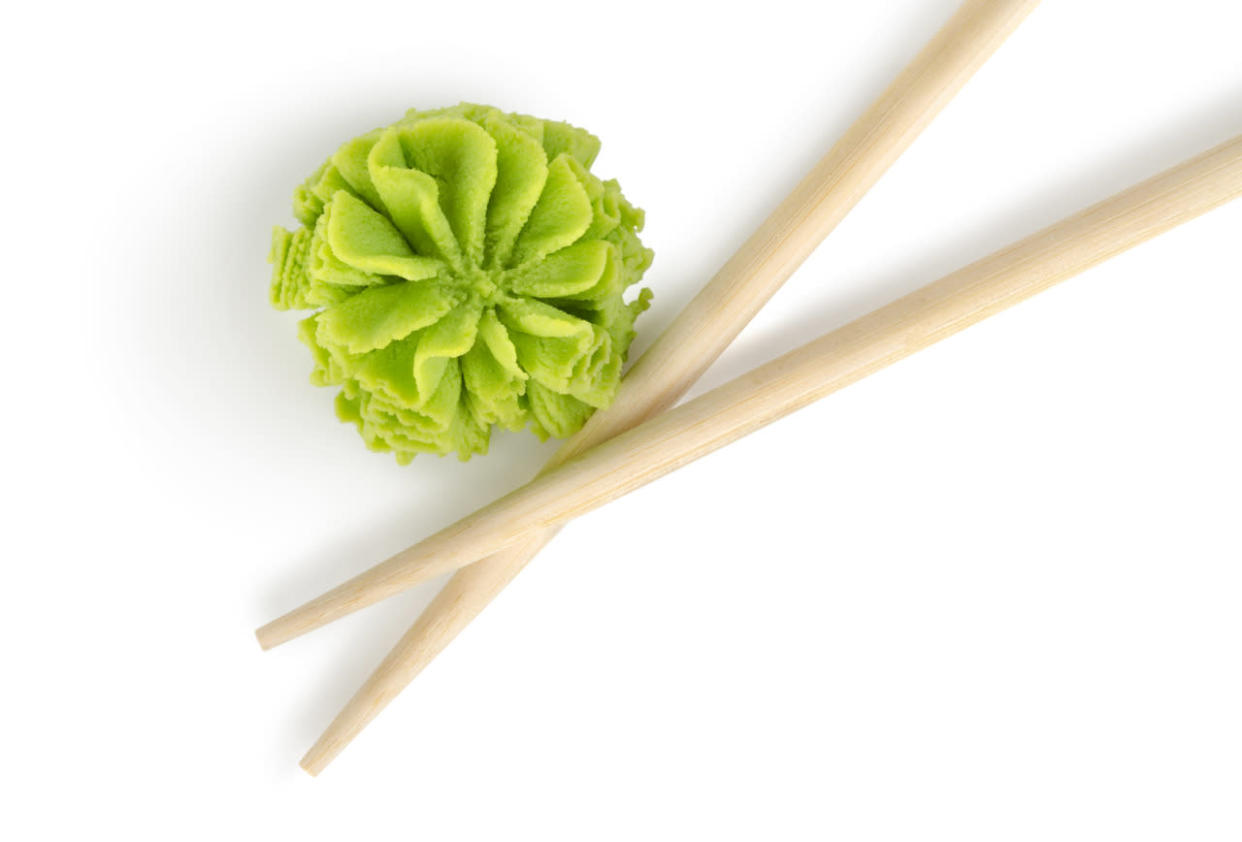The unexpected health benefits of wasabi

Sushi lovers know all about the unmistakable heat that wasabi gives to sashimi – that bright green paste bringing on tears, runny noses, and sneezes.
But there’s more to the unique condiment than its pungent flavour and potent after-effects. An herbaceous perennial plant native to the wet banks of Japan’s cool mountain streams, Wasabia japonica also has a host of health benefits.
ALSO SEE: The 12 worst foods for your skin
A word of warning: Be sure to look for the real deal. Genuine wasabi is expensive and challenging to produce, with Japan and British Columbia making most of the world’s supply. Many, if not most Japanese restaurants in North America use imitation wasabi, which is typically made with horseradish, dry mustard and green dye.
And while consuming a spoonful of wasabi every day for its purported health benefits might be unrealistic or just plain unappealing, note that it is also available in supplement form.
Anti-cancer
Wasabia japonica contains natural chemicals called isothiocyanates, which are known to neutralize carcinogens and inhibit the growth of cancer cells. Studies have pointed to the substance’s protective effects against colon, lung, stomach, blood and breast cancer, among other forms of the deadly disease.

Antibacterial
Wasabi contains 6-methylsulfinylhexyl isothiocyanate, an anti-microbial agent effective against bacteria such as E. coli and Staphylococcus aureus – possibly protecting people against food poisoning when eating raw fish.
The leaves of the plant, meanwhile, contain Allyl isothiocyanate, which was found to be effective in killing Helicobacter pylori. This bacterium causes stomach inflammation (gastritis) and ulcers in the stomach and duodenum. Researchers are also looking at wasabi’s antimicrobial properties in the treatment of tooth decay.
Other health benefits
The isothiocyanates in wasabi have been shown to reduce diarrhea, protect cardiovascular function, and stimulate bone calcification. They have also been found to alleviate inflammatory conditions such as asthma or even anaphylaxis.
In his book “The Green Pharmacy The Ultimate Compendium Of Natural Remedies From The World’s Foremost Authority On Healing Herbs,” James Duke says that a spoonful of wasabi each day may relieve allergies, especially hay fever.
ALSO SEE: Weird diets celebrities swear by
Researchers have also looked at the effectiveness of wasabi’s components in treating Type 2 diabetes.
For all its promise, though, be warned that there is a risk of consuming too much wasabi. It contains a chemical component called hepatotoxin, which is not harmful in small doses but could lead to liver damage in large amounts.
Are you a wasabi fan? Let us know your thoughts by tweeting to @YahooStyleCA.



